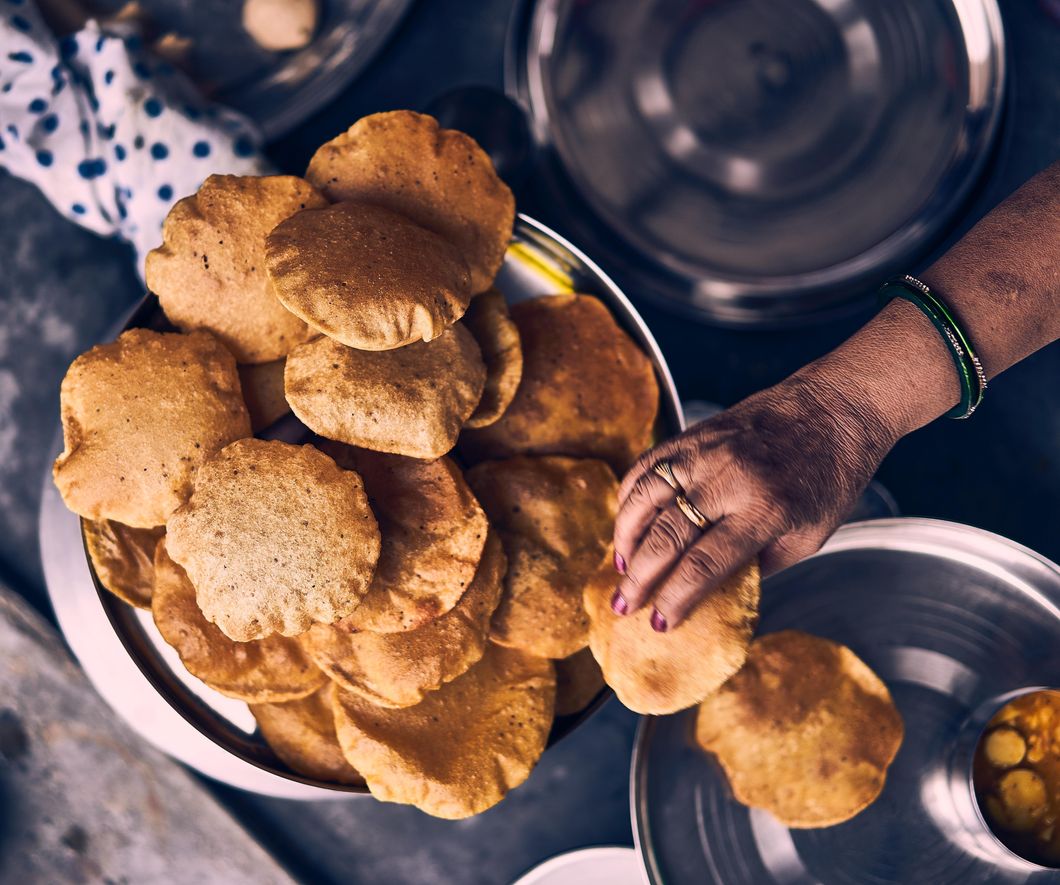"Beta, Ek Roti Aur Kauh…"
"Child, eat one more roti..."
"Arrey, mera bachcha kitna patli ho gey…"
"Oh my, my child has become so thin…"
"Hum log khate peete ghar ke hain…"
"We belong to a well nourished family…"
If you have grown up in an Indian or Desi household, you might have heard your mother remarking such phrases as quoted above. Indian mothers and grandmothers LOVE feeding any lingering younger child in the family and beyond till their stomachs are ready to burst. It's their way of showing "Maa Ka Pyar" meaning The Affection of a Mother". With this particular extending notion, as these children grow older, Indian beauty standards, characterized by the shape of a women to only be considered ideal when having a narrow waist with wider hips and breasts, where her long, black silky hair flows down to bounce upon the gaps of her waist come into play and this child is now considered "chubby, healthy, fat, etc" where shorter names such as "Gollu, Guglo" are enacted, translating into plump. Thus, begins the journey of an awkward, scrawny Indian embarking throughout life, with the loss of identity where the subservient nature comes to rescue for the pride of Desi parents.
However, on the other hand, my mother has spent a good part of her life cooking and feeding my sister and I, often adding a dollop of butter to our rice or rotis because she believed children need to eat fatty foods; and the "healthiest" form of these fatty foods was "Ghar Ka Khana" meaning "The Food of Home". Surpassing the widely known narcissism of most Indian parents, food became a comfort to my mom and this was carried on to both my sister and I.
The result? I grew up to be declared "morbidly obese" with each visit to the pediatrician whom on the path to losing weight faced a lot of difficulties shedding off the excess pounds. Now, when I ask my mom why she fed me so much when I was younger, she tells me it's what mothers do. She'd tell me, "Other kids' moms are also doing the same but they didn't become fat." Although she doesn't blame me for becoming corpulent, she isn't ready to accept that part of it and her associated parenthood to be her fault. This is the case with most Indian families where food takes priority over health. What we fail to realise is that slowly these food habits lead to lifestyle diseases like diabetes and obesity. The most annoying part of the whole process is when parents shame their kids for being fat. It's almost as though they didn't play a part in making their kids unhealthy.
We often hear and use the expression, "We Want What We Can't Have." And this lies true for my story of reaching obesity due to my Asian parents. Before moving to America, my parents both lived in the northern state of Punjab in India. Both belonging from different villages, one from Attari and the other from Kalara, miles apart separated by cities, however, they both shared one aspect together. They were starving. And this starvation followed them till America until they reached their first home in New York, 74th Avenue; or Little India, adding on to all the daily ghee and sugar in our food. But, as much as I want, I can't blame my mother for being the way she is. It's what she learned from her mother and grandmother, women who spent a lot of time in the kitchen to make sure their children had delicious food everyday; the food that my parents were unable to eat. My mother wasn't raised to be a working woman; she was raised to be a mother who made sure her children never went hungry to bed. Without disappointing my mom and her talent of food making, our homemade food now consists of being cooked in less oil and spices.
More than a life changing event for myself, it was a challenge to the ancestry of womanhood in my family whose only way that love was depicted was through food. And I also became part of that cycle for a while. As someone under the pre-med track at Hunter College, it would be quite contradictory if my teachings on health didn't reflect upon my family who had inoculated unhealthy eating habits.































